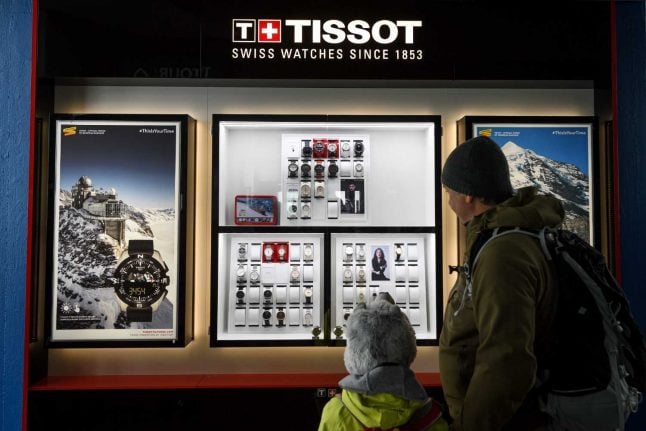Overall, Swiss watch exports fell 21.9 percent in March compared to a year earlier, to 1.4 billion Swiss francs ($1.4 billion, 1.3 billion euros) — with a range of markets seeing devastating declines, as economies worldwide have basically ground to a halt in the face of the COVID-19 pandemic.
Exports to Hong Kong, the sector's biggest market, plummeted 41.3 percent, while exports to France fell 48 percent, and those to South Korea were down 46.2 percent.
UPDATE: What you need to know about the coronavirus crisis in Switzerland
Exports to Italy, one of the countries hardest-hit in the pandemic and which has introduced some of the strictest lockdown rules, saw the sharpest decline, plunging 57.6 percent.
Watch exports to China, a key market for Swiss luxury products, meanwhile saw a rebound of 10.5 percent in March after falling by more than half a month earlier, “probably in anticipation of the end of the crisis and going hand-in-hand with an increase in domestic consumption,” FH said.
Exports to the United States, the country currently hardest-hit by the pandemic with more than 40,000 deaths, also showed a perhaps surprising surge of nearly 21 percent compared to March 2019.
“Watches priced at over 3,000 francs grew strongly there, in a market that has been very dynamic since the beginning of the year, probably anticipating future shipping difficulties,” FH said.
The federation warned that the decline in overall exports, which covers watches sold to retailer inventories, was significant, but was “nonetheless lower than the drop in (consumer) sales in some of the main markets.”
“A deterioration is expected in April,” it warned.
Following the news, Swatch Group, which owns luxury brands like Tissot, Longines and Omega, saw its share price plummet 6.3 percent in midday trading to 191.15 Swiss francs, as the Swiss stock exchange's main SMI index dipped 1.9 percent.
In a note published earlier this month, Vontobel analyst Rene Weber warned that the Swiss watch industry was in for “the worst decline in more than 50 years”, and forecast that exports would contract by 25 percent this year.
He hinted though that that outlook could be optimistic, since it was based on the assumption that stores across Europe and the United States would reopen in May and June.



 Please whitelist us to continue reading.
Please whitelist us to continue reading.
Member comments